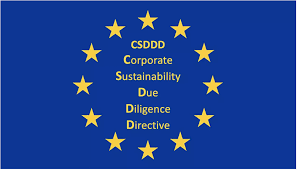The General Data Protection Regulation (GDPR) has significantly changed how organizations handle data protection and privacy. It emphasizes the importance of transparency and honesty in disclosing data breaches and vulnerabilities. In a recent episode of the podcast Life with GDPR, Tom Fox and Jonathan Armstrong from Cordery Compliance discussed the topic of corporate responsibility and risks in data protection, with a particular focus on the SolarWinds case.
To recap, in late 2023, the SEC filed a lawsuit against SolarWinds Corp and its CISO, Tim Brown, following the 2020 data breach, bringing the issue of executive liability in cybersecurity disclosures to the forefront. The lawsuit raised important questions about the personal liability of senior executives for inaccurate risk disclosures and has potential implications for other industries under US securities law.
The 2020 breach, orchestrated by Russian hackers, targeted SolarWinds’ software, Orion, and exposed highly sensitive information. The hackers gained access to SolarWinds and planted spyware in the Orion program. SolarWinds then distributed an update to its corporate customers, unknowingly spreading the Russian spyware. This allowed the hackers to access the highest levels of the US government and major corporations.
The SEC’s lawsuit against SolarWinds and Tim Brown focused on the poor disclosures about the company’s information security throughout 2018, 2019, and 2020. While SolarWinds publicly claimed to have good cybersecurity, internal communications revealed that employees were aware of the company’s cybersecurity issues and considered them a mess. This discrepancy between internal knowledge and external disclosures formed the basis of the SEC’s allegations.
The SEC complaint alleged that SolarWinds’ public statements about its cybersecurity practices and risks were at odds with its internal assessments, including a 2018 presentation prepared by a company engineer and shared internally, including with Brown, that SolarWinds’ remote access set-up was “not very secure” and that someone exploiting the vulnerability “can do whatever without us detecting it until it’s too late,” which could lead to “major reputation and financial loss” for SolarWinds. Similarly, as alleged in the SEC’s complaint, 2018 and 2019 presentations by Brown stated, respectively, that the “current state of security leaves us in a very vulnerable state for our critical assets” and that “[a]ccess and privilege to critical systems/data is inappropriate.”
Beyond this SEC enforcement action, there were other implications as well. One key takeaway from the episode is the pressure on corporate leaders, including CISOs, Data Protection Officers, and Compliance Officers, to disclose data breaches promptly. While GDPR offers some protection to Data Protection Officers, they are not entirely exempt from liabilities. The SolarWinds case serves as a reminder of the need for specific and timely disclosure of breaches and the importance of addressing system vulnerabilities.
The risks associated with data breaches are not limited to regulatory fines. Litigation risks are a significant concern for organizations, with shareholders and whistleblowers potentially seeking legal action. The episode highlights the importance of transparency and not misrepresenting information to regulators. Misrepresentations can lead to severe consequences for individuals in positions of responsibility within corporations.
Budget constraints can also hinder the timely fixing of vulnerabilities, ultimately leading to breaches. Organizations need to take proactive measures to identify and address vulnerabilities promptly. Realistic resource assessments are crucial to ensuring that adequate resources are allocated to data protection efforts. Additionally, having adequate insurance protection, such as Directors and Officers (D&O) insurance, can help protect individuals in positions of responsibility from potential liabilities.
The episode also emphasizes the need for organizations to consider the impact on their stock exchange filings when deciding whether to disclose a data breach. The decision to admit a violation of a stock exchange can be challenging and depends on factors such as materiality. Organizations need to assign a dedicated team to consider these factors, mainly when engaged in transactions like mergers and acquisitions or fundraising.
Transparency and honesty are key principles in data protection and privacy. Audit reports and investigation findings must be acted upon promptly to address vulnerabilities. Emails and other forms of communication can serve as evidence in legal proceedings, highlighting the importance of careful communication within organizations.
The potential for litigation is significant in data breach cases. Shareholders may seek legal action if they believe the value of their stock has been affected. Whistleblowers, incentivized by various jurisdictions, may also come forward with information. This highlights the need for organizations to maintain a culture of transparency and integrity and for individuals to review their remuneration packages to avoid conflicts of interest.
In conclusion, GDPR, corporate responsibility, and risks in data protection are interconnected. Organizations must prioritize transparency, honesty, and timely disclosure of breaches and vulnerabilities. Proactive measures, realistic resource assessments, and adequate insurance protection are crucial to mitigating risks. By considering the impact on stock exchange filings and maintaining a culture of integrity, organizations can navigate the challenges associated with data protection and privacy in the GDPR era.












